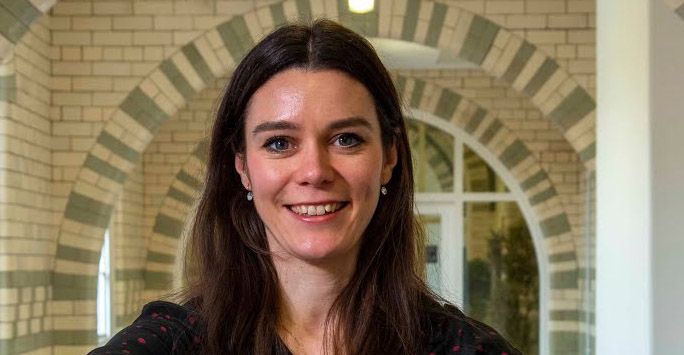World Alzheimer Report 2022
Post-diagnostic care or lack thereof by Dr Clarissa Giebel, ARC NWC Senior Research Fellow

The common theme of this year’s dementia reports seems to be post-diagnostic care and support, or rather the lack thereof. A few months ago, the UK Alzheimer’s Society released a report entitled “Left to Cope Alone”, depicting the many inequalities and barriers in accessing and using care after the diagnosis. Now fast forward to #WorldAlzheimersDay, and Alzheimer’s Disease International (ADI) has just launched their annual report – also on post-diagnostic care and navigating the system (download the full report).
From my research into post-diagnostic social care for dementia, and by working with unpaid carers, people with dementia, and care providers every day, I know how limited care provision and access to it is. It’s sadly no news to hear that people are facing a postcode lottery even within their own city; that people with a carer who is proactive and digitally literate are often much better off than those who live on their own; that people from minority ethnic backgrounds often face cultural barriers in accessing external care; and that those with a dementia other than Alzheimer’s disease often struggle finding the right care – be that in the community or in a care home. And that is just the tip of the iceberg. People with dementia and their unpaid carers, who provide so much care without getting the adequate recognition for it, face many many more barriers.
According to the ADI, an estimated 85 percent of people with dementia may not access post-diagnostic care. That is world-wide. Let that sink in please. Now, world-wide there are approximately 55 million people living with dementia, the majority of whom are residing in lower- and middle-income countries. These settings are known to have less dementia support available, often because dementia is not commonly understood within the culture and awareness is low.
The ADI 2022 report focuses on many different aspects of post-diagnostic care, and not only the many barriers people experience. Indeed, it is quite a lengthy read (over 400 pages!),but let me give you a few highlights! The report is broken down into eight parts focusing on different aspects of post-diagnosis: Impact of diagnosis, Progression and general care across dementia stages, Care of symptoms, Current and future non-pharma interventions, and pharma interventions, Special considerations, Societal perspectives on dementia, and The Road ahead.
The report contains a huge amount of valuable information, and particularly for those new to the topic area, or wanting to read more into specific areas, it is all in one convenient place. Whilst all parts are equally important, for me personally Part VII, the Societal perspectives on dementia care, is of particular interest. Possibly because I’m currently immersed in working with global partners to try to understand the care systems in different countries better. The Lewy Body Society will also be pleased to see a full chapter on Lewy Body dementia in the report.
Some of the key highlights, besides the shockingly high percentage of people living with dementia who have not been offered any post-diagnostic support (45% in lower-income countries, 37% in high-income countries), include the vast number of people who fail to have a care plan in place (64%). That is particularly important to capture early on, to ensure that the wishes of the person with dementia are considered. But let’s not forget about the unpaid carers. 92% of carers stated that they were stressed – to varying degrees – by their caring role. Only 8% stated they were rarely or never stressed.
Equally, health and long-term care professionals was focused on as well. Nearly half of professionals reported feeling stressed some of the time, and 37% were stressed often or all of the time. Why is this important? If care professionals, as well as the millions of unpaid carers across the globe, feel stressed some or most of the time, they burn out and require their own mental health support, leading to poorer levels of care and support for the person living with dementia.
What we need to consider, and what this reports makes very clear, is that a lot of work needs to be done still to improve post-diagnostic care for people with dementia, and their unpaid carers, as well as the health and social care workforce. From a researcher perspective, reports such as these help to raise the profile of this huge problem, lifting it outside of the academic bubble, and give the problem a greater voice to be talked about. What we need is decision makers to listen and implement changes to improve care, because we don’t want 85% of people with dementia to go without care. We want 0% to go without care, and 100% to receive the care they need and deserve.
Download the World Alzheimer’s Report 2022
(Source: Dementia Researcher)